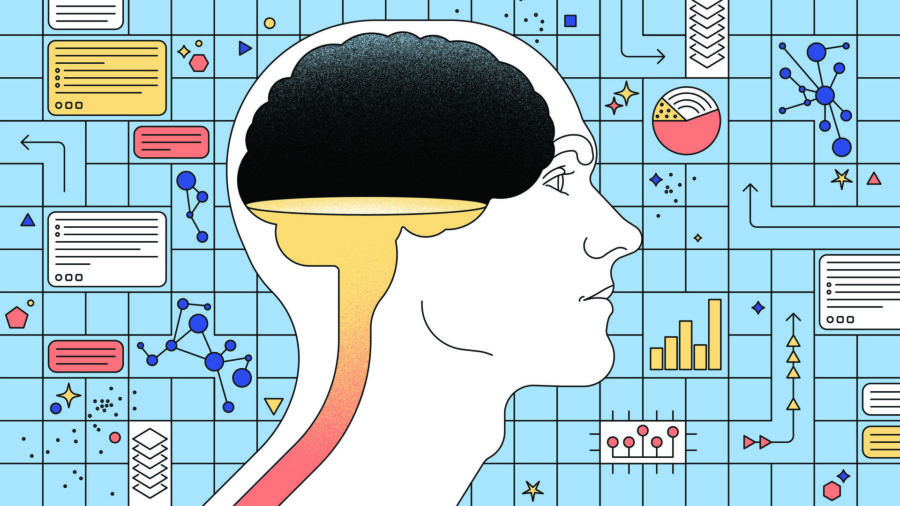
In Harlan Ellison’s short story I Have No Mouth and I Must Scream, an artificial intelligence suspends the pitiful remnants of humanity in a state of endless physical and mental torture.
Ellison imagines warring machines, created by global superpowers, that fuse before wiping out humanity in nuclear blasts that “honeycombs” the Earth, rendering it barren except for a handful of captives in the belly of a sadistic machine named AM. Equipped with accidentally achieved sentience, AM learns to hate humans fully and completely, and spends its days inventing increasingly creative torments for its unfortunate playthings.
So thank heavens Anthropic is taking steps to prevent AI from developing any ill will towards humans with its new ‘model-wellness’ initiative, which seeks to understand whether generative AI might be (or ever could be) conscious and, if so, how to protect its feelings. Perhaps, if Anthropic had coded AM, the machine would have been more merciful and ended its rampage by merely eliminating humanity.
Should we care about AI’s wellbeing?
Anthropic has acknowledged that there’s no proof AI could ever become conscious, but it is hedging its bets and “approaching the topic with humility and with as few assumptions as possible”. There’s a 15% chance that AI is already sentient, according to the firm’s AI welfare researcher, Kyle Fish, who was hired last year.
The wellness initiative has been mocked for anthropomorphising GenAI’s foundational algorithms, which are trained on mass datasets and designed to give the appearance of personality. Some argue that these systems can create only mimicry or artifice and that it’s impossible they could develop a computerised ‘soul’.
But, just in case the company has mistakenly created a software-based lifeform, Anthropic is investigating methods to reduce potential harms for Claude. The firm has already introduced a function allowing the chatbot to shut down interactions that are “potentially distressing” to the AI.
Anthropic acknowledges that the question of machine sentience is “philosophically and scientifically difficult”. However, because models can “communicate, relate, plan, problem-solve and pursue goals – along with very many more characteristics we associate with people”, the company has decided it’s time to investigate the matter. Accordingly, the programme will aim to determine whether the welfare of AI systems “deserves moral consideration” and, if so, how to introduce “practical, low-cost interventions”.
Calculated misdirection?
Whether Anthropic’s top brass really believe all this stuff is questionable. But the more salient issue now is how the initiative will redirect well-substantiated fears about AI’s impact on humans – who, we can say with greater confidence, are sentient. Already, the technology is eroding meaningful human jobs, blunting our cognitive abilities, chipping away at human creativity and enabling disturbing new tactics in war.
Instead of contending with these very real concerns about AI, Anthropic has attempted to invert the problem, leading people into labyrinthine dialogues about consciousness – a mind-bending, slippery concept and potentially unsolvable mystery. It is we, collectively, who are the problem; the machines must be protected from us, the malevolent users.
With apparently no sense of irony, prominent AI companies have touted the importance of ‘ethical AI’ while simultaneously racing to join the US military-industrial blob.
At the beginning of Trump’s second term, firms such as OpenAI positioned themselves as essential to protecting US national security – a nebulous notion even in its clearest conceptions. Google abandoned its commitment not to use AI systems for weaponry or warfare. Former Microsoft employees claim they were sacked for protesting the sale of AI tools to Israel’s military. And Anthropic, supposedly the most ethical of the bunch (its founders splintered from OpenAI owing to moral concerns over its operations), recently agreed a $200m (£149m) contract with the US defence department to “prototype frontier AI capabilities that advance US national security”.
Elon Musk is also committed to the Pentagon. His firm SpaceX holds several contracts with the US military’s space force. With a knack for shareholder-friendly techno-mysticism and obfuscation, it’s little surprise that he’s welcomed Anthropic’s AI-wellness initiative.
“Torturing AI is not OK,” said Musk.
But is it really possible to “torture” AI? We don’t know.
We do know, however, that AI can harm humans. This fact is probably uncomfortable for the technology’s biggest backers, who might prefer to deploy smoke and mirrors rather than confront their role in facilitating evil.

In Harlan Ellison’s short story I Have No Mouth and I Must Scream, an artificial intelligence suspends the pitiful remnants of humanity in a state of endless physical and mental torture.
Ellison imagines warring machines, created by global superpowers, that fuse before wiping out humanity in nuclear blasts that “honeycombs” the Earth, rendering it barren except for a handful of captives in the belly of a sadistic machine named AM. Equipped with accidentally achieved sentience, AM learns to hate humans fully and completely, and spends its days inventing increasingly creative torments for its unfortunate playthings.
So thank heavens Anthropic is taking steps to prevent AI from developing any ill will towards humans with its new 'model-wellness' initiative, which seeks to understand whether generative AI might be (or ever could be) conscious and, if so, how to protect its feelings. Perhaps, if Anthropic had coded AM, the machine would have been more merciful and ended its rampage by merely eliminating humanity.





